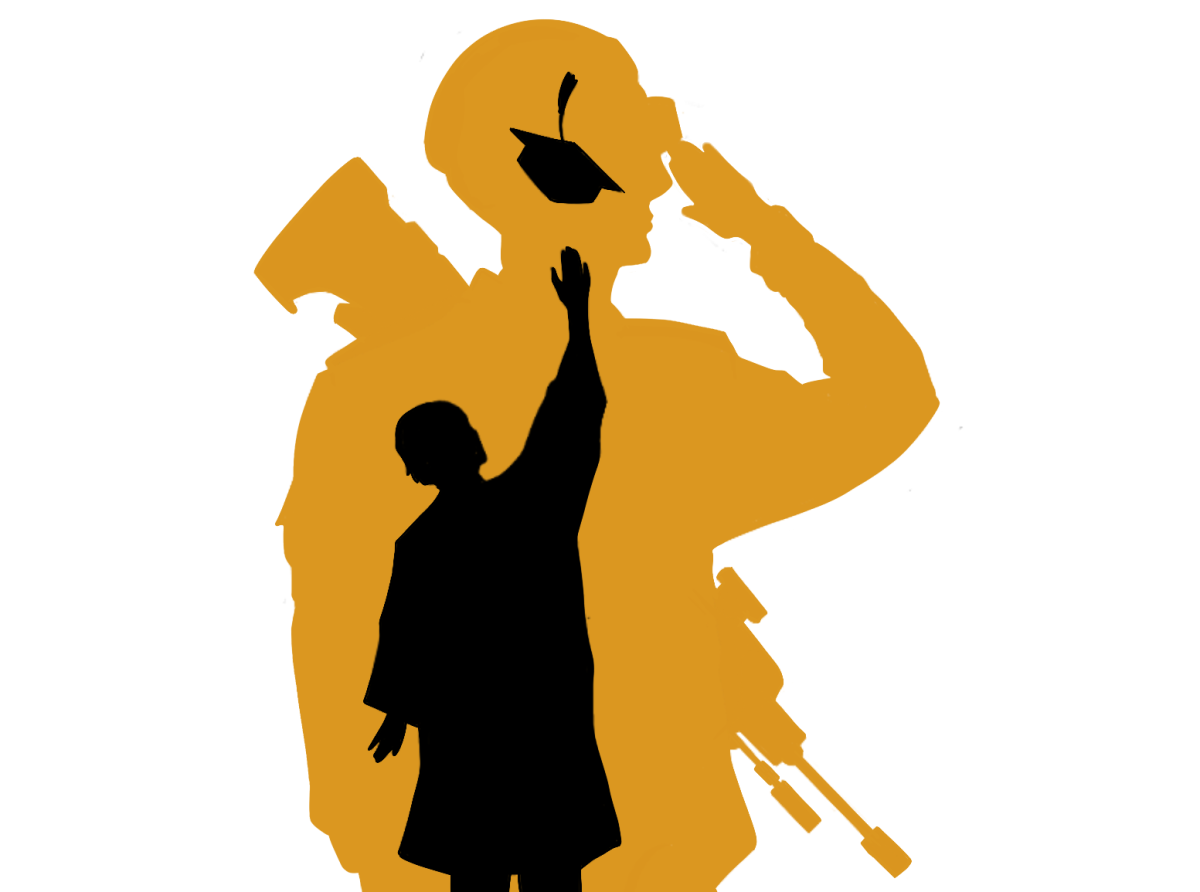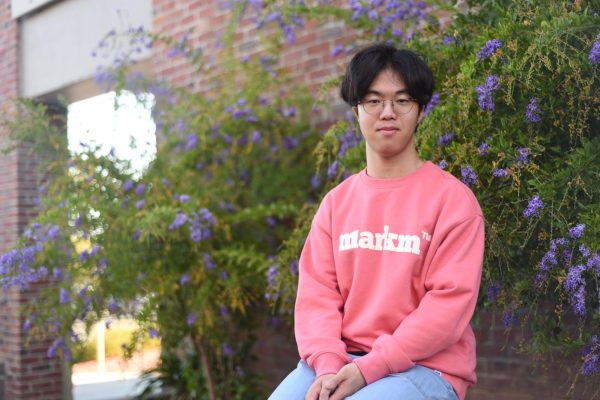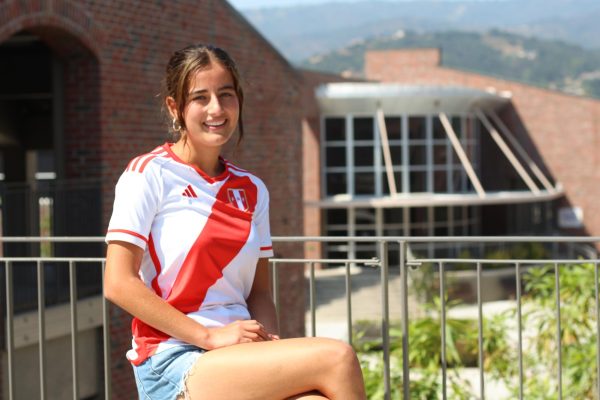When Superintendent Graham Clark approached his high school guidance counselor as a junior for ways to get a scholarship to attend college, he was recommended to apply to the Reserve Officers’ Training Corps (ROTC). After receiving the scholarship, Clark attended Santa Clara University through the ROTC program.
“When you get a scholarship from the military they pay for your college upfront but then you serve in the military afterward, so it would be either one year on active duty or two years in the reserves for every year they paid for,” Clark said. “I got eight years in the reserves and I ended up serving 28 years but my initial command was to do eight years to kind of repay back my scholarship.”
During Clark’s years of service, he was a part of the National Guard where he worked a civilian career and spent at least one weekend a month training. The training usually took place at local bases such as Camp Roberts but later was relocated to Los Angeles and Sacramento, depending on which unit he was in at the time. Clark was also required to attend a biannual week-long training. Additionally, Clark might be asked to take a leave of absence from his job when called upon to serve. One instance of this was the Rodney King riots of 1992 in Los Angeles.
“There was a riot in Los Angeles and they said they needed the National Guard, so at the time they called us in San Jose and we had to drive down to the armory,” Clark said. “Then we were down there for about six weeks.”
Later, Clark served in Iraq for a year, which he cited as a terrifying time in his life, as the possibility of missile strikes resulted in constant anxiety. Clark remembers getting off the plane after landing the first day and immediately running for a bunker after alarms notified him of a missile headed towards the base. Although Clark says unexpected long absences and their unpredictability impacted not just himself but also his family.
“If you’re deployed for weeks and you have a family, whoever your family is, and especially if you have kids, that other guardian has to pick up all the slack for you,” Clark said. “So it can put a lot of stress on your family in a way that a regular job would not.”
Sophomore Anthony Barrera plans to join the ROTC program in college. He was introduced to the program through advertisements, Hollywood biopic films and the Operation Red Wings memorial. However, he says his interest in the military began when he was a toddler and his patriotism has maintained his interest throughout his high school years.
“It’s my role to serve,” Barrera said. “I feel very patriotic. I have a lot of love for this country.”
Although Barrera originally planned to join the Military and Navy due to the intimidation the Air Force gave him, by gaining self confidence he now has decided to pursue his dream and join that branch.
Barrera says his goal is to get accepted into the Air Force Academy, but if he is not accepted, he plans to join the ROTC program at Texas A&M University.
On the other hand, senior Alice Ross says it was her interest in foreign relations that made the Naval ROTC program catch her attention as a college pathway. Due to the Navy’s international presence and connections to diplomacy, Ross hopes to use it as a stepping stone for a career in foreign relations at an agency like the United Nations.
“The thing about the Navy is that there’s a position on the ship I want to do — it’s called the fourth language officer,” Ross said. “It essentially handles any relations you have with people outside the ship which requires a foreign language translation, and I really like languages.”
Ross attended a Navy summer camp her sophomore year and seminar her junior year, both of which she says were invaluable experiences. The summer camp she attended was related to STEM and its use in Navy professions. After enjoying this camp, she attended a seminar which simulated life at the Naval Academy, giving her a glimpse into her future.
“I really liked the atmosphere there because everybody there wanted the same things as me and has done the same prep,” Ross said. “They wanted it just as much as I did. I thought that was like a really cool thing I’d like to be around.”
Clark notes that while many high schools offer a Junior ROTC (JROTC) program as an elective for students, FUHSD does not. He cites the lack of student interest as the primary reason, saying roughly 160 students need to be interested per school for the program to be viable.
Additionally, Clark says FUHSD families’ relative financial affluence is one of the reasons why few students are interested in the ROTC program. Clark said where the program is more popular students are interested in both the educational and economic opportunity.
“Scholarship opportunities are more valuable in some schools than others,” Clark said. “I think most people at FUHSD can afford to go to college — it’s a question of which college and how prestigious.”
Additionally, Clark notes the process of on-campus recruitment is controversial in an area focused on academics and some students have a negative attitude towards the military, also contributing to the lack of interest. Clark says if ROTC were to be implemented, it would be an elective course. This is largely because many students typically chose STEM-focused electives, so they wouldn’t give up another course to take it. Clark ultimately believes the ROTC program can teach students leadership skills and how to deal with physically challenging situations.
“I think it’s a great opportunity, and there’s a lot of things that people don’t know about the military that if they knew about it they would enjoy it,” Clark said. “There are people who go into the military and get nursing degrees, medical degrees, doctorate degrees, legal degrees and all kinds of experience. If you want to have something that challenges you early in your career, I would say the military is a great option.”












